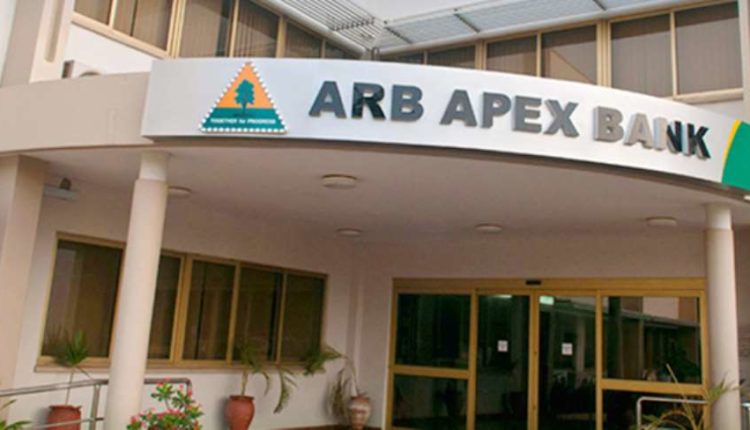The ARB Apex Bank has called on government to reduce the corporate tax burden on rural and community banks from 25 per cent to 15 per cent.
Mr. Alex Kwasi-Awuah, the Acting Managing Director (MD) of the Bank said the present corporate tax of 25 per cent, continues to limit the abilities of rural banks to channel funds to smaller businesses in rural communities.
According to Mr. Awuah, “the call for government to consider reducing the tax from 25 per cent to 15 per cent, it’s been something we’ve been advocating for years”.
While making reference to the previous tax threshold, the Acting MD said, “as we all know, the corporate tax was 8 per cent sometime back, because rural banks were still looked at as agents of development in rural communities until I think the year 2015 or 2016, it was increased to 25 per cent”.
Since then, rural and community banks, Mr. Awuah disclosed, have been advocating for the government to consider reducing the corporate tax rate to 15 per cent.
“It is important in the sense that when you look at the work of the rural and community banks, they play a major role in terms of development.
“You go to these areas [rural], and they [banks] do lots of corporate social responsibility programmes” Mr. Alex Kwesi Awuah said.
While touching briefly on the support rural banks provide to the rural communities, Mr. Awuah revealed that the banks used to provide educational support before the advent of the Free Senior High Education.
“We [Rural Banks] are spending on education, school infrastructure, health infrastructure, construction of police stations across the country.
“We [Rural Banks] think if our corporate tax rate is reduced, it will help us build some capital and improve our reserve position and also make our banks stronger.”
Retrieving locked-up funds
Mr. Awuah further made calls to the government and stakeholders to help the rural banks to also retrieve some locked-up funds with investment companies.
“We [Rural Banks] have been advocating that government helps us to get the monies [locked-up] back. It had significant impact on our operations, and as we’re also development agents.”
It is believed that the rural and community banks still have amounts summing up to about GH¢458.37 million with investment companies that are regulated by the Securities and Exchange Commission (SEC).
Reports have it that, total payments amounting to about GH¢190.62 million in cash and bond issued, were received by the affected rural and community banks as of August 2021, out of the validated GH¢648.99 million locked-up funds.
Also, 92 out of the 145 rural and community banks currently operating in the country, have at different levels, been adversely impacted by the locked-up funds issue.
Mr. Awuah also stated that, owing to support from the ARB Apex Bank, the rural banking industry has successfully been able to manage its liquidity needs. Also, customers continue to have confidence in the rural banking industry.
In the meantime, other stakeholders have called on government to reduce the corporate income tax burden on corporations.
Recently Hon. Joe Ghartey, the former Minister for Railways Development, called on government to implement prudent measures to reduce the corporate income tax (CIT) burden on companies.
Mr. Ghartey stated that, he believes reducing corporate tax will in the long run stimulate economic growth and development.


Comments are closed.